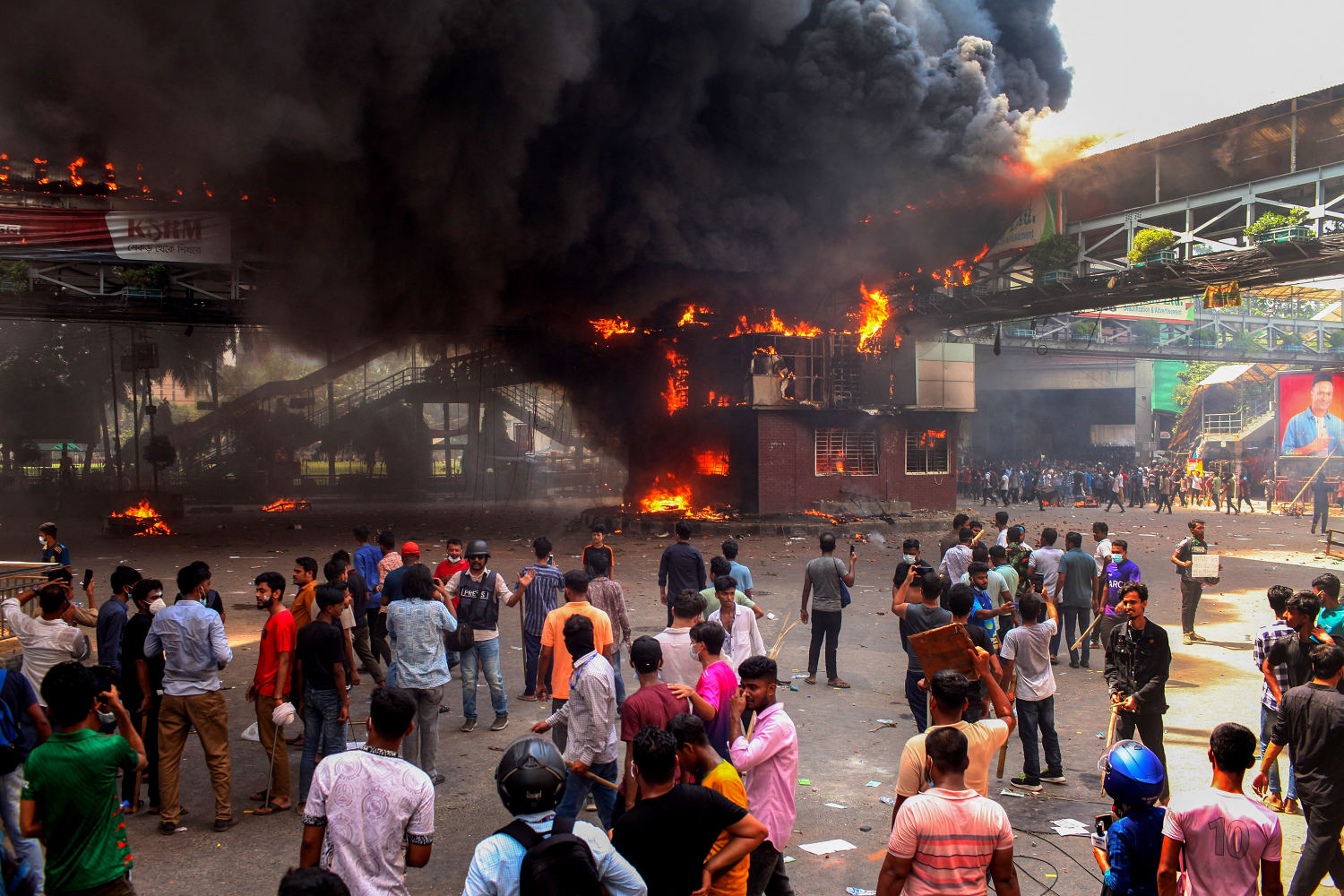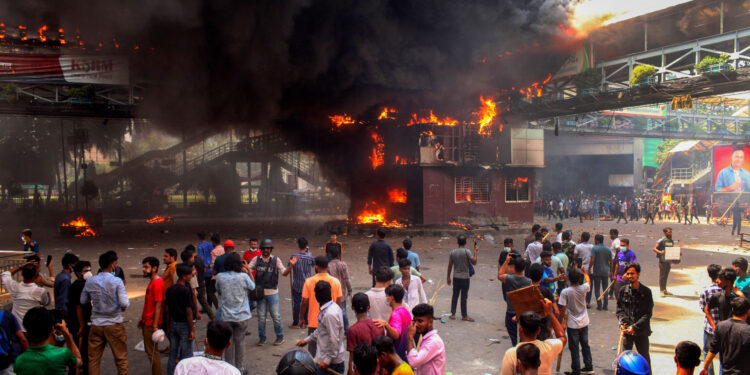
Bangladesh soldiers patrolled Dhaka’s deserted streets on Saturday amid a curfew to quell deadly students-led protests against government job quotas that have killed at least 105 people this week.
Overseas telephone calls mostly failed to connect while websites of Bangladesh-based media organizations did not update and their social media handles remained inactive.
In addition to the deaths, the clashes have injured thousands, according to data from hospitals across Bangladesh. The Dhaka Medical College Hospital received 27 dead bodies between 5 p.m. and 7 p.m. (1100-1200 GMT) on Friday.
For five days police have fired tear gas and hurled sound grenades to scatter protesters as demonstrators clashed with security personnel, throwing bricks and igniting vehicles.
The demonstrations — the biggest since Prime Minister Sheikh Hasina was re-elected for a fourth successive term this year — have also been fueled by high unemployment among young people, who make up nearly a fifth of the South Asian nation’s 170 million people.
With the death toll climbing and police unable to contain the protests, Hasina’s government imposed the national curfew and deployed the military.
The curfew was eased for two hours from noon on Saturday to allow people to shop for supplies and complete other chores, television channels reported. It will last until 10 a.m. (0400 GMT) on Sunday, when the government will assess the situation and decide the next course of action, the reports added.
Those venturing out on the streets had their identification cards inspected by army personnel at different check points, TV footage showed.
The nationwide unrest broke out over student anger against the controversial quotas for government jobs, including 30% for the families of those who fought for independence from Pakistan.
Hasina’s government had scrapped the quota system in 2018, but a court reinstated it last month. The state appealed against the reinstatement and the Supreme Court suspended it for a month, pending a hearing on Aug. 7.
In the central Dhaka district of Narsingdi, protesters stormed a jail on Friday and freed over 850 inmates before setting fire to the facility, TV channels reported, citing police. Scattered incidents of arson were also reported on Saturday.
Hasina dropped plans to leave on Sunday for visits to Spain and Brazil due to the protests, the AFP news agency reported citing her press secretary.
Many opposition party leaders, activists and student protesters had been arrested, said Tarique Rahman, the exiled acting chairman of the main opposition Bangladesh Nationalist Party. Police arrested Nahid Islam, a leading coordinator of the students’ agitation, at 2 a.m. on Saturday, the protesters said in a text message.
Reuters could not independently confirm the arrests.
International rights groups have criticized the internet suspension and actions of security forces. The European Union said it is deeply concerned by the violence and loss of life.







